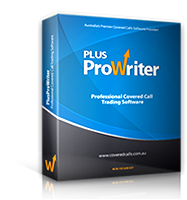Q. What is the difference between a stock and a share? A. You may have heard some people talking about shares in one company and then another group of people talking about stocks in that company and wondered what the difference is. In reality the terms “stocks” and “shares” mean the same thing, the two terms are interchangable however the prevalent term in Australia has traditionally been “shares” whilst in the U.S. they are predominately called “stocks”.
Q. What is an option (Exchange Traded Option)? A. Options including “calls” or “puts”, can be both bought and sold. Exchange Traded Options gives you the right to buy or sell a particular share at an agreed price (the exercise price) on or before a specific date (the expiry date). When you exercise the option, you take up your right to buy or sell the share.
Q. What is a call option? A. A call option gives the buyer the right but, not the obligation, to purchase shares (from the seller) at an agreed price within an agreed period sometime in the future, often 1 or 2 months.
Q. What is a put option? A. A put option gives the buyer the right, but not the obligation to sell shares (to the option seller) at an agreed price within an agreed period sometime in the future.
Q. What is a covered call? A. A covered call is offering shares you own for sale at an agreed price on or before an agreed date, often 1 month or more in the future.
For example: if you own 1000 OSH (Oil Search) shares which you bought @ say $3.40 each ($3,400); you can offer to sell those shares at a strike price of say $3.50 each, in one months time. A buyer pays you a premium, for the offer [contract], not the shares, of say 90 cents per share ($900 per 1000), which you get straight away and get to keep. The buyer may exercise you at any time until the end of the month which means you must sell your 1000 shares @ the strike price of $3.50 ($3,500). If the buyer chooses not exercise you (usually when the shares remain sideways or go down), you keep the premium and the shares to write options over again next month.
Because shares can only go up, down or sideways, then its probable that you will not be exercised, most of the time; because you will only, normally, be exercised if the shares go up
Q. How do I trade covered calls? A. Covered calls can be traded on-line or via a stockbroker(s).
Q. What risk is associated with covered call trading? A. Good question. There is risk with covered calls which is probably best defined by discussing the likely outcomes of covered call trading.
If the shares offered in the call go up, you will probably be exercised. You will receive the strike price for your shares plus keep the premium. You will miss the opportunity to capitalise on the share gain. Remember you may also pay brokerage.
- If the shares go up, you may be exercised. You will receive the strike price for your shares plus keep the premium. Remember you will also pay brokerage.
- if the shares stay side ways, you may not be exercised. You keep the shares which are roughly the same value, and you keep the premium. You may pay less brokerage.
- If the shares go down, you most likely will not be exercised. You keep the premium and the shares, which are of less value. It is possible for the underlying shares to go to zero.
Some people consider writing (selling) covered calls less risky than just buy and hold stock strategy. Writing options has outperformed just owning shares alone.
Q. Where can I get more information on options? A. The Australian Stock Exchange is a great information resource including distance education courses which are good value for money. Please see www.asx.com.au


